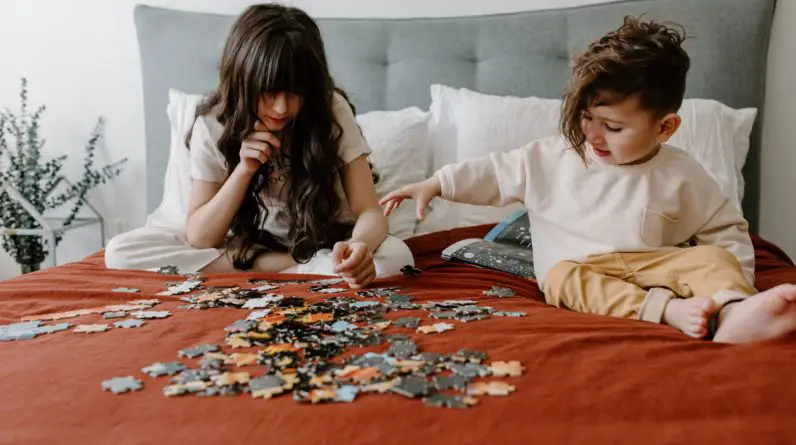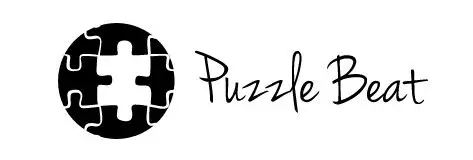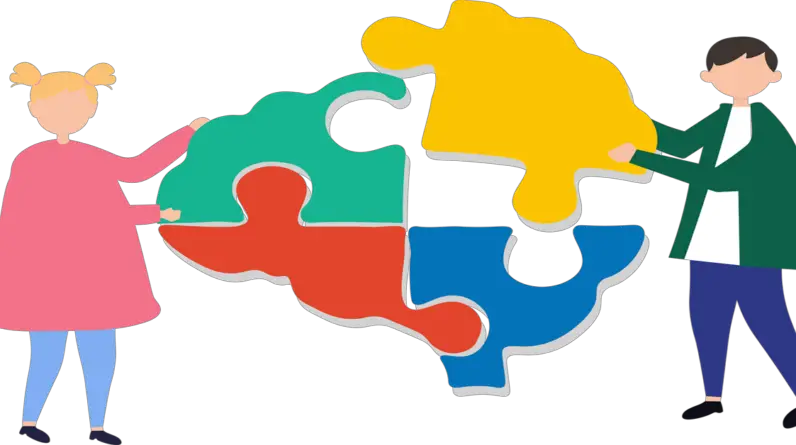
The educational benefits of jigsaw puzzles for children
How do jigsaw puzzles help children’s development? Jigsaw puzzles are a great way to help children develop cognitively and visually. Solving puzzles helps children to develop problem solving skills, fine motor skills, and hand-eye coordination. In addition, working on puzzles helps children to develop spatial awareness and visual perception skills. Puzzles are also a great way for children to learn about shapes, colors, and patterns.
The benefits of jigsaw puzzles for early child development
It’s never too early to introduce your child to puzzles. You can find a variety of jigsaw puzzles ranging from ages 1 to adults. For young children, try starting with a with simple puzzles (4-piece puzzle). As your child develops and becomes more skilled at solving puzzles, you can gradually increase the difficulty level by adding more pieces to the puzzle. Try to find puzzles that feature your child’s favorite characters or themes to make the activity even more enjoyable.
Recommended first puzzles for child development would be the common wood shapes puzzle with various geometric forms. This type of puzzle helps with eye-hand coordination, matching, and problem solving. The next level up would be a simple 6 to 12 piece puzzle which helps with those skills as well as beginning to think in 3 dimensions. After that, Puzzles with interlocking pieces or “knobs” are good for helping kids learn about spatial relationships. If a child can put together a standard jigsaw puzzle, try one with a twist such as puzzles that are shaped like animals or have unusual piece shapes. These types of puzzles help children understand that objects can be viewed from different perspectives and also aids in developing problem solving skills.
How jigsaw puzzles can help your child’s development from age 5 until age 8.
Jigsaw puzzles are a great way to help your child develop cognitively and visually. They can help your child’s development in a number of ways, including:
– improving problem-solving skills
– strengthening hand-eye coordination
– enhancing memory and concentration
– developing spatial awareness
– fostering creative thinking.
Jigsaw puzzles are also a fun and stimulating activity that the whole family can enjoy together. So why not get started on one today? Your child will love it!
For children aged 5-8, jigsaw puzzles can help to develop:
Fine motor skills: Jigsaw puzzles require the use of small muscles in the hands and fingers in order to pick up and manipulate pieces. This helps to develop fine motor skills.
Hand-eye coordination: Puzzles require children to use their hands to place pieces in the correct spots. This helps to develop hand-eye coordination.
Problem solving skills: Puzzles require children to see a bigger picture. Not just of the shapes of the puzzle pieces themselves but also the image of the puzzle itself.
Fostering creative thinking: Puzzles also require children to think outside the box in order to find solutions. This helps to foster creative thinking.
Enhancing memory and concentration: In order to complete a jigsaw puzzle, children need to remember where they have seen certain pieces before and concentrate on finding them. This helps to enhance memory and concentration.
Spatial awareness: Jigsaw puzzles require children to think about the relationships between objects in order to solve the puzzle. This helps to develop spatial awareness.
The educational benefits of jigsaw puzzles for children
Jigsaw puzzles are a great way for children to learn and develop new skills. They can help with problem solving, improving fine motor skills, and promoting concentration and patience. Jigsaw puzzles are also a fun and enjoyable activity that the whole family can enjoy together.
There are many different types of puzzles available on the market, so it is important to choose one that is suitable for your child’s age and ability. It is also worth considering how much time you want your child to spend on the puzzle, as this will impact the level of difficulty. If you are looking for a quick and easy activity, then a simple jigsaw puzzle with large puzzle pieces may be ideal. However, if you have young children and wat to really challenge themselves, you may want to consider getting a 100 – 500 piece puzzle set.
You may also want to consider a 3D puzzle as that extra dimension can really help with spatial awareness and shape recognition. Traditional puzzles may be carried out in many different ways, but 3D puzzles, often known as “dimensional” or “3-dimensional” puzzles, make things more difficult while also offering outstanding educational advantages for kids and teens.
The number of game pieces are meant for different age groups depending on the amount of components. There are various degrees of difficulty. We strongly advise that having prior gaming experience. This is an excellent way to spend family game night, just remember to separate the pieces buy color and shape and to also have ample room for your complete puzzles.
Final Piece
Puzzle play is a great way for children to learn and develop new skills. They can help with problem solving and promoting concentration and patience. Puzzles are also a fun and enjoyable activity help children learn and the whole family can enjoy together.
Jigsaw puzzles offer many benefits for children at a young age. They can help teach children problem solving skills, creative thinking, and more. Jigsaw puzzles are also a great way for families to spend time together and bond while working on a common goal. Choose a puzzle that is suitable for your child’s age and ability level, and have fun!

